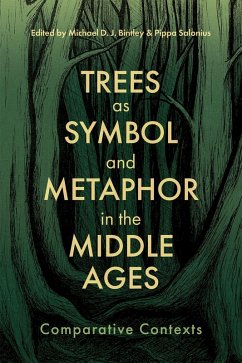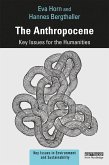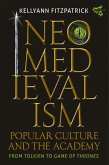Highlights human encounters with the forest and its trees at the time of the European Middle Ages, when their lofty boughs were weighted with meaning.
Forests, with their interlacing networks of trees and secret patterns of communication, are powerful entities for thinking-with. A majestic terrestrial community of arboreal others, their presence echoes, entangles, and resonates deeply with the human world.
The chapters interrogate the pre-Anthropocene environment, reflecting on trees as metaphors for kinship and knowledge as they appear in literary, historical, art-historical, and philosophical sources. They examine images of trees and trees in-themselves across a range of environmental, material, and intellectual contexts, and consider how humans used arboreal and rhizomatic forms to negotiate bodies of knowledge and processes of transition. Looking beyond medieval Europe, they include discussion of parallel developments in the Islamic world and that of the Maori, the indigenous people of New Zealand.
Hinweis: Dieser Artikel kann nur an eine deutsche Lieferadresse ausgeliefert werden.
Forests, with their interlacing networks of trees and secret patterns of communication, are powerful entities for thinking-with. A majestic terrestrial community of arboreal others, their presence echoes, entangles, and resonates deeply with the human world.
The chapters interrogate the pre-Anthropocene environment, reflecting on trees as metaphors for kinship and knowledge as they appear in literary, historical, art-historical, and philosophical sources. They examine images of trees and trees in-themselves across a range of environmental, material, and intellectual contexts, and consider how humans used arboreal and rhizomatic forms to negotiate bodies of knowledge and processes of transition. Looking beyond medieval Europe, they include discussion of parallel developments in the Islamic world and that of the Maori, the indigenous people of New Zealand.
Dieser Download kann aus rechtlichen Gründen nur mit Rechnungsadresse in A, D ausgeliefert werden.
Hinweis: Dieser Artikel kann nur an eine deutsche Lieferadresse ausgeliefert werden.









